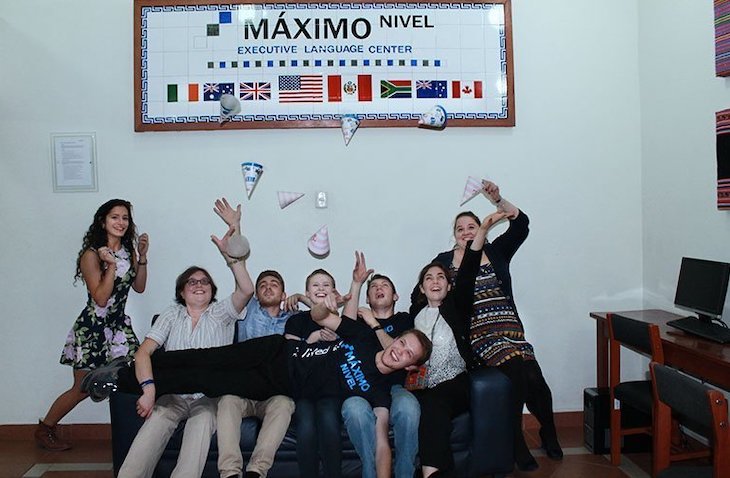For many travel‑lovers, the dream of living abroad while earning a living as an English teacher seems out of reach without a university diploma. However, a TEFL (Teaching English as a Foreign Language) certificate can open doors even if you don’t have a bachelor’s degree.
In this guide, we explore five destinations where no degree is required to teach English, what to expect when applying, and how to gain hands‑on classroom experience through internships and volunteer programs.
Why a TEFL Certificate Matters
While some countries waive the degree requirement entirely, most employers still want to see evidence that you understand teaching methodology and classroom management. A reputable TEFL course provides structured training and often includes observed teaching practice.

A TEFL certificate is the first step to teaching English abroad and getting paid. Completing a TEFL course not only makes you more employable but also equips you with lesson‑planning techniques and classroom confidence.
Top Countries Where a Degree Isn’t Required
Cambodia
Cambodia is one of the most forgiving destinations for non‑degree holders. TEFL providers and job boards consistently list Cambodia as an option where you can legally teach English without a degree.
The demand for English teachers is high due to the country’s growing tourism and business sectors. Salaries range from US$10 to 14 per hour, and the cost of living is extremely low, allowing teachers to live comfortably and explore historic sites like Angkor Wat.
Schools value experience and a TEFL certificate; a college degree is optional.
Drawbacks: Because the market is relatively unregulated, contracts and work visas can be inconsistent. Positions at high‑end international schools usually still require a degree, and local salaries may not allow for substantial savings.
Mexico
Mexico has a vast need for English teachers, especially in private language institutes and public schools. Salaries average around MXN 13,750 per month (about US $760), and the cost of living is moderate.
Many employers list a bachelor’s degree as a preference rather than a hard requirement, so a strong TEFL certification and prior teaching experience can help you compete for positions. Mexico offers urban excitement in Mexico City, beach towns like Puerto Escondido, and colonial cities such as Guadalajara.
Drawbacks: wages are lower compared to other destinations, and some schools may prefer native speakers or degree holders for full‑time contracts.
Spain
Spain is a popular option in Europe, where a four‑year degree is not required but strongly preferred. Many teachers work through language‑assistant programs such as Auxiliares de Conversación or through private academies that prioritize TEFL certification and native or near‑native proficiency.
Monthly salaries range from €700 to €1,200, which is sufficient to cover shared accommodation and the occasional tapas outing. Because Spain is in the EU, citizens from non‑EU countries usually need a work permit or must enroll in visa‑sponsored programs (e.g., student visa plus part‑time work).
Drawbacks: competition is fierce, and better‑paying academies often favor candidates with degrees. Cost of living varies; Madrid and Barcelona are more expensive than smaller towns.
Argentina
Argentina’s private language institutes and corporate training centers are booming, and they rarely require a bachelor’s degree. Many employers prioritize English fluency and an accredited TEFL certificate over a university diploma.
Many teachers work in Buenos Aires, known for its European‑style architecture and tango culture. Salaries are modest and often paid by the hour; however, living costs are low in pesos, and teachers can supplement their income with online tutoring.
Drawbacks: inflation and currency fluctuations can affect earnings, and some schools may prefer native speakers.
Colombia
Colombia has invested heavily in English‑language education. The government’s “Colombia Bilingüe” initiative created a boom in public‑school and private‑language‑institute jobs. You can teach without a degree, although many employers prefer degree holders. Typical salaries in private institutes range from COP 3.4–4.2 million per month (approx. US $850 to 1,035). Cities like Medellín, Bogotá, and Cartagena offer rich cultural experiences and a mild climate.
Drawbacks: competition is increasing, and public‑school programs often prioritize participants from government initiatives who hold degrees or are part of volunteer programs. Obtaining a work visa may involve bureaucratic hurdles.
The Importance of Experience and Networking
While these countries allow teachers without a degree, experience and professional references can set you apart. To build classroom confidence, many aspiring teachers participate in internships and volunteer programs before or alongside paid teaching roles.
Maximo Nivel: TEFL, Internships & Volunteer Projects
Maximo Nivel’s intensive TEFL course is offered in Costa Rica, Guatemala, Peru, and online. Graduates often leverage the organization’s network to secure jobs across Latin America.
- Education internships: For those who want guided practice, Maximo Nivel offers Education Internships in Latin America. Interns work alongside a professional teacher, assisting with instruction and classroom management, planning and teaching lessons, and receiving feedback to hone their skills. Such internships are ideal for non‑degree teachers to gain real classroom experience and a letter of recommendation.
- Teaching English volunteer projects: Maximo Nivel’s volunteer program recognizes that public schools in Costa Rica, Guatemala, and Peru rarely offer quality ESL classes, creating an unfair gap. Volunteers help both children and adults improve their English skills while honing their teaching skills. Before starting, every teaching volunteer participates in an ESL Crash Course covering teaching techniques and strategies. This supportive structure makes it ideal for building your teaching résumé.
IVHQ (International Volunteer HQ)
International Volunteer HQ (IVHQ) runs volunteer programs worldwide and has specific projects for teaching English.
One notable option is the Teaching English program in Cairo, Egypt. It suits fluent English speakers eager to share their skills in NGOs, community centers, and under-resourced schools; prior classroom experience isn’t required, and a TEFL certificate is helpful but not mandatory. This placement lets aspiring teachers build experience and community connections while improving access to education in Cairo.
GoEco
Live in Otaki Village, Nagano, and help locals practice English through conversation while immersing in traditional Japan. This program is ideal for those seeking an authentic cultural experience in a rural, mountainous region.
Volunteers help community members gain confidence and practice in conversational English by hosting informal sessions at a local community center. An advanced level of English is required, but no teaching certificate is necessary. This initiative allows volunteers to build cross-cultural connections while supporting local tourism.
Projects Abroad
For those looking for a more structured volunteer placement with comprehensive support, Projects Abroad’s Volunteer Teaching in the Philippines places you in Bogo City, Cebu, assisting local teachers in primary and high schools to boost students’ English skills. You’ll get a full induction, workshops, 24/7 in-country staff, and host-family accommodation. Beyond the classroom, Projects Abroad provides free cultural awareness training and access to an alumni network with post-trip perks and discounts.
African Impact
If Africa is calling, African Impact’s Teaching English & Community Support project in Zanzibar offers an immersive experience. A teacher shortage in rural Zanzibar creates a critical need. Volunteers assist local teachers by leading adult classes for employment, supporting early childhood development, and fostering community integration.
This program is ideal for non-degree teachers seeking both meaningful impact and adventure.
Involvement Volunteers International (IVI)
Inspire the next generation while surrounded by the stunning mountain scenery of Ella. This English teaching program places you in local communities where you can make a real impact through conversational practice. No prior teaching experience is required—just enthusiasm and a passion for cultural exchange. It’s a rewarding opportunity to share your language skills and immerse yourself in the heart of Sri Lanka.
Volunteering Solutions (VolSol)
Make a real impact in Madagascar! Join Volunteering Solutions’ English Teaching program and help local students build confidence and brighter futures. You’ll support community schools, share conversational skills, and immerse yourself in island life — think vibrant markets, lush forests, and lemurs!
Whether you’re a first-time volunteer or a seasoned educator, you’ll gain meaningful experience, new friends, and stories to last a lifetime. Ready to teach, explore, and grow?
Global Vision International (GVI)
Earn your TEFL certification and gain practical teaching experience with this six-month apprenticeship in the misty mountains of Chiang Mai. The program includes three months of comprehensive training followed by a three-month teaching placement. You will have the chance to apply your skills in a real-world setting while exploring ancient temples, vibrant markets, and lush forests in your free time. This program is an ideal launchpad for a meaningful teaching career abroad.
Making the Leap: Tips for Non‑Degree Teachers
- Get certified. A TEFL certificate is the standard qualification. Ensure your course includes practical teaching hours.
- Gain experience. Build your résumé through volunteer programs or internships, which provide valuable references.
- Research visas. Secure the correct legal work or volunteer visa by checking a country’s specific immigration rules.
- Prepare financially. Save for initial costs, as salaries may be lower. Budget for flights, setup, and living expenses.
- Network. Connect with other educators for job leads through program alumni networks and local events.
Ready to Teach Abroad?
Teaching English abroad without a degree is not only possible — it’s an enriching way to see the world, develop professional skills, and make a positive impact. Countries like Cambodia, Mexico, Spain, Argentina, and Colombia welcome enthusiastic teachers who hold a TEFL certificate and are eager to engage with local communities.
By investing in training and taking advantage of internships or volunteer placements, you can gain the experience and network you need to launch a rewarding teaching career overseas. Your journey as a non‑degree English teacher can be as adventurous as it is meaningful.


Munira Maricar · Travel Writer
With an international living background spanning Singapore, Qatar, Japan, and Mexico, Munira enjoys sharing insights on immersive travel while emphasizing the vital role of cultural respect and ethical engagement. Her extensive experience offers a unique perspective that inspires others to explore the world through service, ensuring that every journey respects and contributes positively to local traditions and communities.